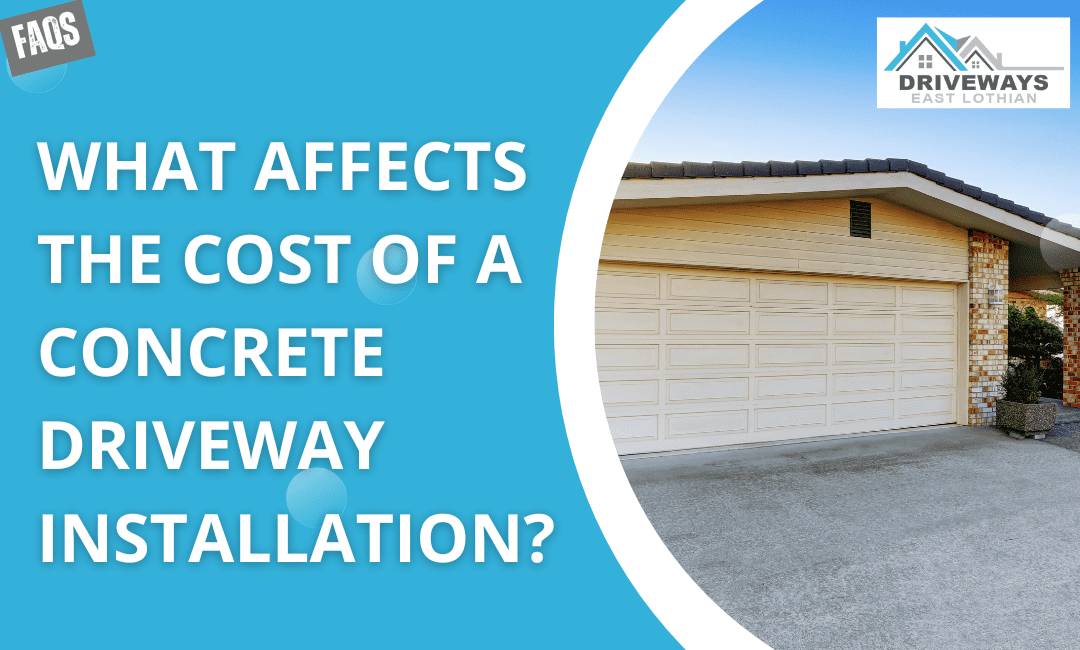What affects the cost of a concrete driveway installation? When considering a concrete driveway, one of the first questions on your mind is likely to be, “How much will it cost?” Concrete driveways are an excellent investment, offering durability and a clean aesthetic. However, the final price can vary significantly based on several factors. Here’s a breakdown of what influences the cost of a concrete driveway installation, so you can plan your budget with confidence.
1. Size and Shape of Your Driveway
The larger the driveway, the more materials and labour will be required, directly impacting the cost. Additionally, complex shapes or custom designs with curves and patterns take more time and skill to install than a standard rectangular driveway.
- Example: A simple, rectangular 20m² driveway will cost less than an intricately curved 30m² driveway with custom edging.
2. Thickness of the Concrete
The thickness of the concrete slab is a key factor in determining the cost. Standard residential driveways are typically 10-15cm thick, but heavier vehicles may require a thicker slab, increasing the overall expense.
- Tip: If your driveway will frequently support large vehicles, such as caravans or vans, you’ll need thicker concrete for added strength.
3. Type of Concrete Finish
Concrete driveways come with various finish options, each with its own cost implications:
- Standard Finish: A smooth, polished look, often the most cost-effective option.
- Stamped or Decorative Concrete: Designed to mimic stone, brick, or tile, adding a premium aesthetic but at a higher cost.
- Coloured Concrete: Pigments added to the mix create a unique look, offering customisation at an extra price.
4. Site Preparation Requirements
The condition of your site will play a big role in the cost. If extensive excavation, clearing, or grading is required, it will add to the overall expense. Uneven terrain or soil that needs stabilising can also increase costs.
- Example: A driveway installed on a flat, pre-cleared surface will cost less than one requiring significant levelling and preparation.
5. Drainage and Sub-Base Installation
A proper drainage system is essential to prevent water from pooling on the surface, which can lead to cracks over time. Installing drainage features, such as channels or soakaways, adds to the cost but is crucial for long-term durability. Similarly, the quality and depth of the sub-base (the layer beneath the concrete) will affect both the performance and cost of your driveway.
6. Labour Costs in Your Area
Labour costs can vary based on your location. In East Lothian, our team ensures competitive pricing while maintaining the highest standards of craftsmanship. However, factors like project complexity and the size of the installation team can influence the overall labour expense.
7. Additional Features and Upgrades
Optional upgrades can enhance the functionality and appearance of your driveway but will increase the price. Some popular options include:
- Heating Systems: Ideal for preventing ice build-up in winter.
- Lighting: Adds safety and a touch of elegance to your driveway.
- Edging or Borders: Decorative features that make your driveway stand out.
8. Permits and Regulations
In some cases, you may need planning permission or permits for a concrete driveway installation, particularly if it affects local drainage systems. The cost of obtaining these can vary and should be factored into your budget.
The cost of a concrete driveway installation depends on various factors, but with the right team, you can find a solution that fits your budget and meets your expectations. At Driveways East Lothian, we provide tailored advice and transparent pricing to ensure you get the driveway of your dreams.
Contact us today to schedule a consultation and receive a personalised quote.

